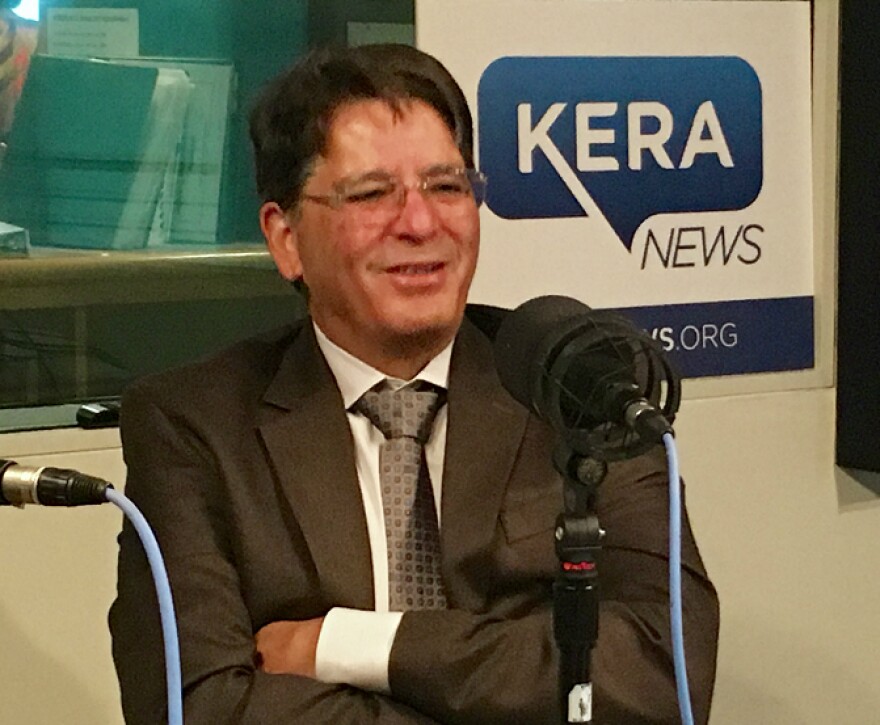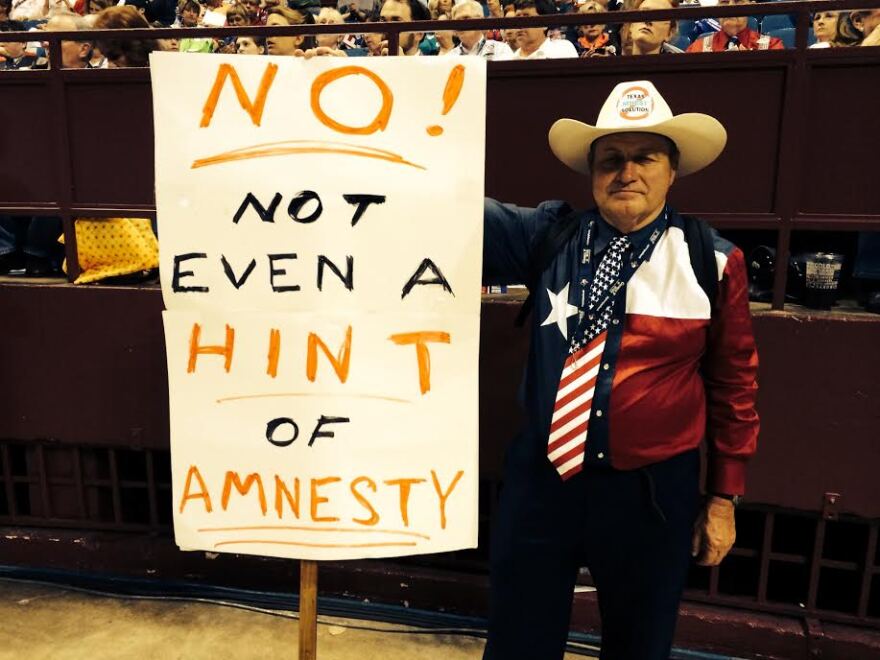The immigration debate is stuffed with loaded phrases like “sanctuary cities” and “anchor babies,” but it's not new. University of California at Irvine Professor Leo Chavez has studied the subject for decades.
In fact, his last book carried the tongue-in-cheek title “The Latino Threat." He says the recent rhetoric on immigration is an ingrained part of American history.
Interview Highlights: Leo Chavez…
… On the recent rhetoric on immigration in the presidential election:
“This comes at a really funny moment in our history because the migration across the border has flat-lined over the last few years. We’re hearing all this inflamed anti-immigrant hysteria, particularly from a couple of the Republican candidates for president, at a time when the border is actually facing some of the least pressure in a long time.
"Unfortunately, I think what has happened is the momentum around the fear of immigrants has grown over the last 30 to 40 years to such an extent that empirical reality almost isn’t important anymore. It’s become a set of assumptions that people feel in their guts. Once you get the momentum going ... I think it takes on a life of its own and then you have politicians who can come in and take advantage of that.”

…On the place Donald Trump’s anti-immigrant rhetoric has in history:
“Most people would say, ‘he’s a billionaire whose work [in real estate], much of which was probably put up by Latino workers.’ That’s not new in American history. In American history, we’ve seen that over and over with other immigrant groups and other famous people who got rich.
Back in the 1800s, Leland Stanford, for example, was one of the biggest nativists in the country. He railed against Chinese, yet he made much of his money on Chinese labor.”
…On the direction the rhetoric may take as the presidential race continues:
“I think what’s going to happen is people will remind the public, particularly for Hillary Clinton, that husband helped bring into effect some of the most draconian laws on immigration we’ve seen. The 1996 immigration law that her husband put into place was one of the worst in terms of castigating immigrants in a bad light, making it more difficult for them to change their status, increased funding for surveillance and prisons, so I think it’ll be an attempt to associate her with many of the trends many Latinos were not in favor of.”
…On whether nativist attitudes will disappear:
“There will be new groups coming in. I think in the short term, people are gonna say, ‘wait a minute, we didn’t really want Mexicans here and we made it very difficult for them to come, we built huge walls, we castigated them, we ostracized them, we blamed them for everything, but now that they’re gone, gee I really miss them! Is there any way we can get them back? ‘Cause this new group in here, I don’t like them!’ That’s the history of America.”
Leo Chavez is professor at the University of California at Irvine.







